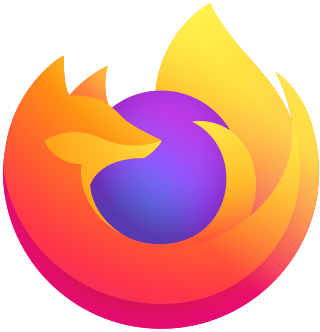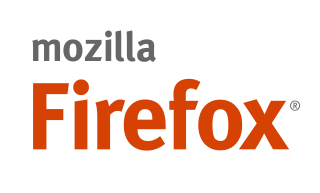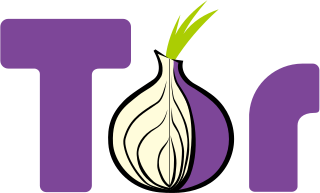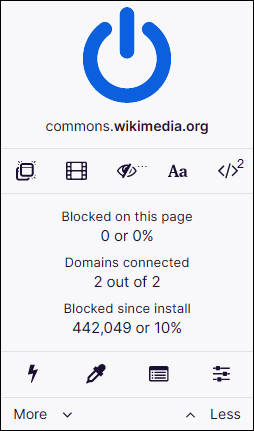Gecko is a browser engine developed by Mozilla. It is used in the Firefox browser, the Thunderbird email client, and many other projects.

Mozilla Firefox is a free and open source web browser developed by the Mozilla Foundation and its subsidiary, the Mozilla Corporation. It uses the Gecko rendering engine to display web pages, which implements current and anticipated web standards. Firefox is available for Windows 10 and later versions of Windows, macOS, and Linux. Its unofficial ports are available for various Unix and Unix-like operating systems, including FreeBSD, OpenBSD, NetBSD, and other operating systems, such as reactOS. Firefox is also available for Android and iOS. However, as with all other iOS web browsers, the iOS version uses the WebKit layout engine instead of Gecko due to platform requirements. An optimized version is also available on the Amazon Fire TV as one of the two main browsers available with Amazon's Silk Browser.

Mozilla Thunderbird is a free and open-source email client that also functions as a personal information manager with a calendar and contactbook, as well as an RSS feed reader, chat client (IRC/XMPP/Matrix), and news client. Operated by MZLA Technologies Corporation, a subsidiary of the Mozilla Foundation, Thunderbird is an independent, community-driven project that is managed and overseen by the Thunderbird Council, which is elected by the Thunderbird community. As a cross-platform application, Thunderbird is available for Windows, macOS, FreeBSD, Android, and Linux. The project strategy was originally modeled after that of Mozilla's Firefox, and Thunderbird is an interface built on top of that Web browser.
The Mozilla Foundation is an American non-profit organization that exists to support and collectively lead the open source Mozilla project. Founded in July 2003, the organization sets the policies that govern development, operates critical infrastructure, and controls Mozilla trademarks and copyrights. It owns two taxable subsidiaries: the Mozilla Corporation, which employs many Mozilla developers and coordinates releases of the Mozilla Firefox web browser, and MZLA Technologies Corporation, which employs developers to work on the Mozilla Thunderbird email client and coordinate its releases. The Mozilla Foundation was founded by the Netscape-affiliated Mozilla Organization. The organization is currently based in the Silicon Valley city of Mountain View, California, United States.

Brendan Eich is an American computer programmer and technology executive. He created the JavaScript programming language and co-founded the Mozilla project, the Mozilla Foundation, and the Mozilla Corporation. He served as the Mozilla Corporation's chief technical officer before he was appointed chief executive officer, but resigned shortly after his appointment due to pressure over his opposition to same-sex marriage. He subsequently became the cofounder and CEO of Brave Software.

Winifred Mitchell Baker is the chairwoman of the Mozilla Foundation and former CEO of the Mozilla Corporation, a subsidiary of the Mozilla Foundation that coordinates development of the open source Mozilla Internet applications, including the Mozilla Firefox web browser. She left the CEO role in February 2024.

The Mozilla Corporation is a wholly owned subsidiary of the Mozilla Foundation that coordinates and integrates the development of Internet-related applications such as the Firefox web browser, by a global community of open-source developers, some of whom are employed by the corporation itself. The corporation also distributes and promotes these products. Unlike the non-profit Mozilla Foundation, and the Mozilla open source project, founded by the now defunct Netscape Communications Corporation, the Mozilla Corporation is a taxable entity. The Mozilla Corporation reinvests all of its profits back into the Mozilla projects. The Mozilla Corporation's stated aim is to work towards the Mozilla Foundation's public benefit to "promote choice and innovation on the Internet."

Carl Malamud is an American technologist, author, and public domain advocate, known for his foundation Public.Resource.Org. He was also founder and president of the Internet Multicasting Service, an organization based in Washington D.C.. During his time with this group, he was responsible for developing the first Internet radio station, for putting the U.S. Securities and Exchange Commission's EDGAR database on-line, and for creating the Internet 1996 World Exposition.
A browser extension is a software module for customizing a web browser. Browsers typically allow users to install a variety of extensions, including user interface modifications, cookie management, ad blocking, and the custom scripting and styling of web pages.
Server Name Indication (SNI) is an extension to the Transport Layer Security (TLS) computer networking protocol by which a client indicates which hostname it is attempting to connect to at the start of the handshaking process. The extension allows a server to present one of multiple possible certificates on the same IP address and TCP port number and hence allows multiple secure (HTTPS) websites to be served by the same IP address without requiring all those sites to use the same certificate. It is the conceptual equivalent to HTTP/1.1 name-based virtual hosting, but for HTTPS. This also allows a proxy to forward client traffic to the right server during TLS/SSL handshake. The desired hostname is not encrypted in the original SNI extension, so an eavesdropper can see which site is being requested. The SNI extension was specified in 2003 in RFC 3546

Mozilla Firefox 3.5 is a version of the Firefox web browser released in June 2009, adding a variety of new features to Firefox. Version 3.5 was touted as being twice as fast as 3.0. It includes private browsing, has tear-off tabs, and uses the Gecko 1.9.1 engine. It was codenamed Shiretoko during development, and was initially numbered Firefox 3.1 before Mozilla developers decided to change the version to 3.5, to reflect the inclusion of a significantly greater scope of changes than were originally planned. It is the last major version to support X BitMap images.
HTML video is a subject of the HTML specification as the standard way of playing video via the web. Introduced in HTML5, it is designed to partially replace the object element and the previous de facto standard of using the proprietary Adobe Flash plugin, though early adoption was hampered by lack of agreement as to which video coding formats and audio coding formats should be supported in web browsers. As of 2020, HTML video is the only widely supported video playback technology in modern browsers, with the Flash plugin being phased out.
Do Not Track (DNT) is a deprecated non-standard HTTP header field designed to allow internet users to opt out of tracking by websites—which includes the collection of data regarding a user's activity across multiple distinct contexts, and the retention, use, or sharing of data derived from that activity outside the context in which it occurred.
Mozilla is a free software community founded in 1998 by members of Netscape. The Mozilla community uses, develops, publishes and supports Mozilla products, thereby promoting exclusively free software and open standards, with only minor exceptions. The community is supported institutionally by the non-profit Mozilla Foundation and its tax-paying subsidiary, the Mozilla Corporation.

The Tor Project, Inc. is a 501(c)(3) research-education nonprofit organization based in Winchester, Massachusetts. It is founded by computer scientists Roger Dingledine, Nick Mathewson, and five others. The Tor Project is primarily responsible for maintaining software for the Tor anonymity network.

Privacy Badger is a free and open-source browser extension for Google Chrome, Mozilla Firefox, Edge, Brave, Opera, and Firefox for Android created by the Electronic Frontier Foundation (EFF). Its purpose is to promote a balanced approach to Internet privacy between consumers and content providers by blocking advertisements and tracking cookies that do not respect the Do Not Track setting in a user's web browser. A second purpose, served by free distribution, has been to encourage membership in and donation to the EFF.

uBlock Origin is a free and open-source browser extension for content filtering, including ad blocking. The extension is available for Firefox and Chromium-based browsers.
DNS over HTTPS (DoH) is a protocol for performing remote Domain Name System (DNS) resolution via the HTTPS protocol. A goal of the method is to increase user privacy and security by preventing eavesdropping and manipulation of DNS data by man-in-the-middle attacks by using the HTTPS protocol to encrypt the data between the DoH client and the DoH-based DNS resolver. By March 2018, Google and the Mozilla Foundation had started testing versions of DNS over HTTPS. In February 2020, Firefox switched to DNS over HTTPS by default for users in the United States. In May 2020, Chrome switched to DNS over HTTPS by default.
Firefox Send was a free and open-source end-to-end encrypted file sharing web service developed by Mozilla. It was operational from August 1, 2017 until July 7, 2020.









